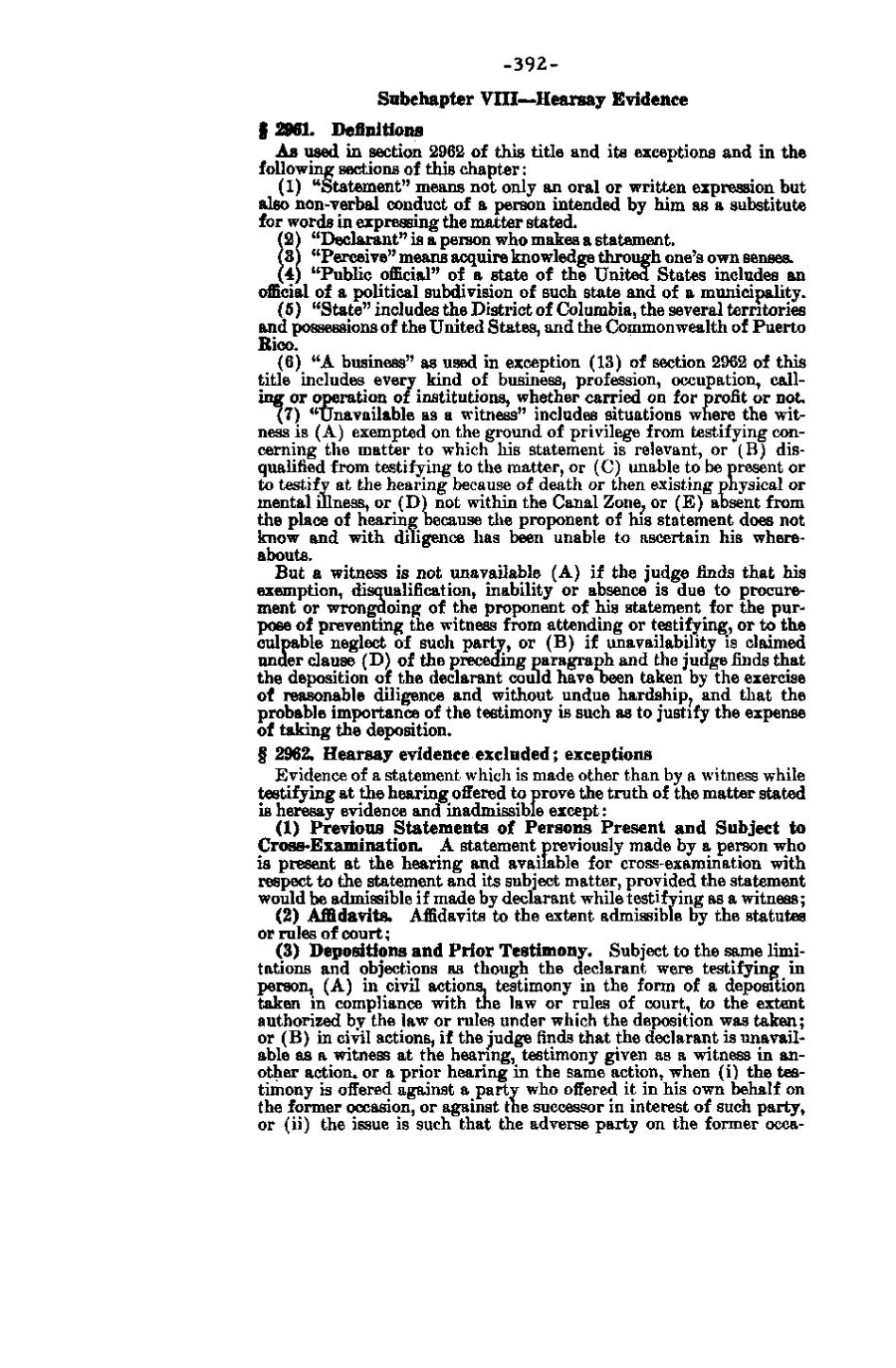–392–
-392Subchapter VIII—Hearsay Evidence § 2961. Definitions As used in section 2962 of this title and its exceptions and in the following sections of this chapter: (1) "Statement" means not only an oral or written expression but also non-verbal conduct of a person intended by him as a substitute for words in expressing the matter stated. (2^ "Declarant" is a person who makes a statement. (3) "Perceive" means acquire knowledge through one's own senses. (4) "Public official" of a state of the United States includes an official of a political subdivision of such state and of a municipality. (5) "State" includes the District of Columbia, the several territories and possessions of the United States, and the Commonwealth of Puerto Bico. (6) "A business" as used in exception (13) of section 2962 of this title includes every kind of business, profession, occupation, calling or operation of institutions, whether carried on for profit or not. (7) "Unavailable as a witness" includes situations where the witness is (A) exempted on the ground of privilege from testifying concerning the matter to which his statement is relevant, or (B) disqualified from testifying to the matter, or (C) unable to be present or to testify at the hearing because of death or then existing physical or mental illness, or (D) not within the Canal Zone, or (E) absent from the place of hearing because the proponent of his statement does not know and with diligence has been unable to ascertain his whereabouts. But a witness is not unavailable (A) if the judge finds that his exemption, disqualification, inability or absence is due to procurement or wrongdoing of the proponent of his statement for the purpose of preventing the witness from attending or testifying, or to the culpable neglect of such party, or (B) if unavailability is claimed under clause (D) of the preceding paragraph and the judge finds that the deposition of the declarant could have been taken by the exercise of reasonable diligence and without undue hardship, and that the probable importance of the testimony is such as to justify the expense of taking the deposition. § 2962. H e a r s a y evidence excluded; exceptions Evidence of a statement which is made other than by a witness while testifying at the hearing offered to prove the truth of the matter stated is heresay evidence and inadmissible except: (1) Previous Statements of Persons Present and Subject to Cross-Examination. A statement previously made by a person who is present at the hearing and available for cross-examination with respect to the statement and its subject matter, provided the statement would be admissible if made by declarant while testifying as a witness; (2) Affidavits. Affidavits to the extent admissible by the statutes or rules of court; (3) Depositions and Prior Testimony. Subject to the same limitations and objections as though the declarant were testifying in person, (A) in civil actions, testimony in the form of a deposition taken in compliance with the law or rules of court, to the extent authorized by the law or rules under which the deposition was taken; or (B) in civil actions, if the judge finds that the declarant is unavailable as a witness at the hearing, testimony given as a witness in another action, or a prior hearing in the same action, when (i) the testimony is offered against a party who offered it in his own behalf on the former occasion, or against the successor in interest of such party, or (ii) the issue is such that the adverse party on the former occa-
�
